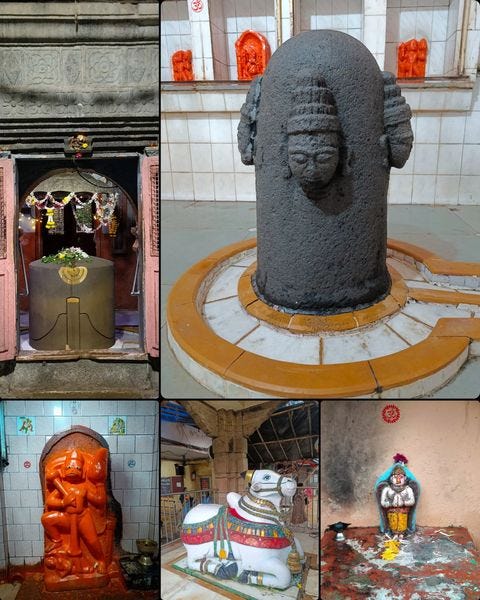Week 256: The Decline of Polytheism, Chinese Kali Temple, Aesthetic
11/09/2024 - Modern Hindu Content
Welcome to Eternal Path! This week we feature: the decline of polytheism, a Chinese Temple in Kolkata, and an aesthetic!
Reading Highlight: The Decline of Polytheism
As Hindus, and inheritors of the oldest and last surviving major tradition in the world, it is imperative for us to understand where why other pagan civilizations failed. These lessons are most applicable to folks in India and Nepal, and we encourage our readers to share insights with this book with relatives and friends in those countries, to ensure the continued survival of Hindu dharma at scale. Those of us in the diaspora also must inculcate these lessons and stay vigilant towards forces trying to pry us away from our religion.
At Eternal Path we have covered the decline of other pagan civilizations in quite a few back issues. Week 203 covered the fall of Roman Paganism, Week 193 with the Spanish conquest of the Aztecs, and Week 47 comparing restrictions on festivals in India to what transpired after Rome’s conversion to Christianity.
On this topic Satyam Bruyat provided this list of books (Tweet linked here) to understand the decline of pagan religions, mostly in Europe. Each book listed has a link to a Bookshop page, but we also encourage finding them in your local library or online in eBook or PDF form:
Read these and share your insights, develop lesson plans for your temple using ChatGPT/Claude/AI platforms and lets spark discussion in the Hindu world about how we can thwart this decline in our own religion!
Temple Highlight: Chinese Kali Mandir
Kolkata for a couple centuries was one of the hubs of India’s small Chinese community. Though many have since moved to China, to Southeast Asia, and to the West, their cultural impact on India, especially the cuisine cannot be understated. While most Chinese in India are Buddhist or Christian there is one very interesting Hindu temple run by them in Kolkata.
In the Tangra area of Kolkata, a historic center of Chinese presence, there is a Kali temple where the aesthetics of the temple resemble those of the countless Kali Temples distributed throughout Bengal. However, the prasad at this temple is special; noodles, chop suey, rice and vegetable dishes are offered to Goddess Kali, and during celebrations Chinese incense sticks light the candles.
The temple is said to have been a place of worship for Hindus starting in the 1960s, and then was properly built out by the Chinese community shortly after. From Atlas Obscura:
“According to one of the popular local legends, some six decades ago when a Chinese boy fell sick and was not responding to any treatments his parents rushed him to an altar made of two black stones under a tree which was worshiped as an incarnation of goddess Kali by local Bengalis. After the parents offered puja at the altar the boy gradually recovered and as an expression of gratitude his parents built a Kali temple at the same location, which later came to be known as Chinese Kali mandir,” said Ching, who has been involved with the temple management for the past 19 years. The black stones and the tree are still there inside the temple. (Atlas Obscura)
The caretaker of the temple is John Cheng, a third-generation Chinese individual living in Kolkata who converted from Buddhism to Hinduism upon taking charge of the temple. Additionally, all Chinese devotees of the temple have taken to giving up beef eating.
To read more on this temple check out: https://www.timesnownews.com/spiritual/beliefs-unite-the-chinese-kali-mandir-of-kolkata-where-noodles-become-prasad-article-108850322

